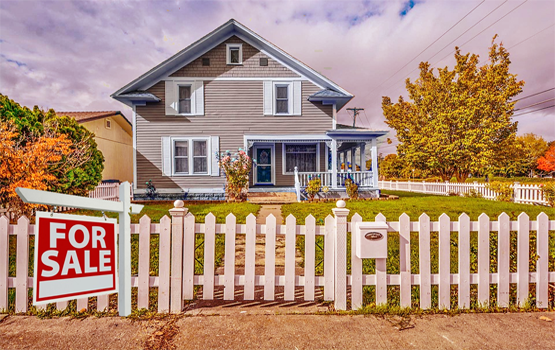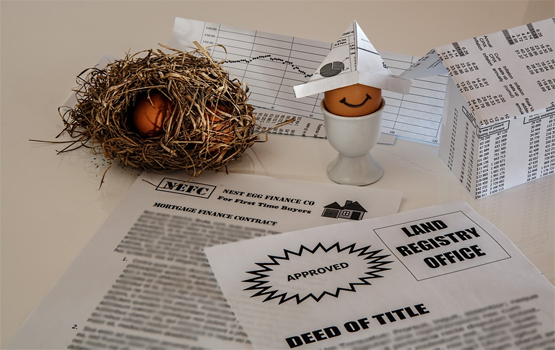The Major Reasons Why & When People Sell Their Homes
Traditionally, there have been six major reasons why and when people sell their homes: family issues, employment changes, financial conditions, lifestyle changes, neighborhood changes, and market conditions.
Family Issues
The family issue home owners cite more than any other when deciding to sell is increased family size. The other reason is mostly from first time home buyers who find their family has simply outgrown their starter home. Empty nest is another very common reason. The kids have grown up and moved out and the owners want a smaller home.
Another common reason are personal relationships like moving in with a partner or getting married so one of the parties will need to sell or both parties will need to sell and then buy something together. On other hand, break-ups cause home owners to sell when there is no enough money to buy other party or the home holds bad memories and parties want fresh start.
There are also other reasons like: selling and move to be closer to relatives and see family more often. Usually parents want to be near children and grandchildren. In some cases people want to see family less often, so they will move to put more distance between them and relatives. Dysfunctional and fractured families have been known to blossom being separated.
The reality is that with interest rates as attractive as they are today, it's more possible than ever to sell, buy something else and make a major move without lowering your family's standard of living.
Employment Changes
Job transfer can affect a decision to sell. There's the obvious matter of relocation if a new job or promotion takes you to a different city or province. In this case, selling most often becomes a necessity for many to pull up roots and move, unless the home owner wishes to retain a property for investment or some other purposes.
Selling property and moving option for people who are commuting and the distance exceeds an hour. Most people would prefer not to spend two or more hours in traffic every day.
Selling and moving to a smaller urban centre may also be one of the reasons for selling. People will have opportunity to buy either a similar home for less money or a bigger one for the same outlay. Even if your employment changes don't require you to move a great distance, you should use the opportunity to assess your home ownership needs and move up if you can.
Financial Conditions
Sellers financial conditions are of the utmost importance in every real estate transaction. Some sellers want to cash in equity and want to sell property to pocket the money. Others don't have enough money to maintain the property. There are property owners who want to help kids or other family members and sell property to help them. Whatever the reason for selling, financial conditions may play big role in decision making. After all, it's the seller who is putting property, equity and sometimes, years of hard work on the line.
With so much at stake, it's imperative that sellers have the needed knowledge and/or hands-on experience of the real estate industry to get the best possible price for the property they plan to put on the market. If they don't have knowledge and experience, than quality professional help is the best option.
Right now, interest rates are near their lowest in decades, so this has lead to unprecedented opportunities for those wishing to buy. Often, mortgage payments will be less than rent on an apartment or townhouse. Therefore, a large number of consumers are considering ownership, many for the first time. For sellers, this holds the big potential.
Lifestyle Changes
The most common lifestyle change that motivate sellers is retirement. For those planning to retire, truly enjoying their latter years may involve a "cashing in" of assets and move to active adult communities with golf courses, workout facilities, social gatherings etc. Others want to travel, pursue a hobby, be less responsible or realize some other dreams.
Changes in lifestyle can include things such as buying a condominium to ease the workload involved with maintenance and upkeep; city dwellers who want to live in a more rural environment, or even those who want to set up a home business.
Sometimes lifetime changes are influenced by aging and health problems. Physical ailments such as knee or back problems make it difficult for an aging population to climb stairs in a two-story, so a one-story home or condo may be more practical. Sometimes a good solution for elderly people with more serious health problems is to move into assisted living housing.
If your reason for selling are lifestyle changes, take your time and try to look far enough ahead in order to use the real estate market to your full advantage and sell your property at a good price.
Neighborhood Changes
The neighborhood issue homeowners cite more than any other when deciding to sell is change for the worse. Most often, people don't want to live near some new noisy business development or new freeway constructed nearby.
Sometimes the reason for selling are the next-door neighbors, decrease in maintenance of individual properties in the area, or crime in the neighborhood.
Market Conditions
Almost every aspect of real estate involves market conditions and timing, so it's a wise to look far enough ahead in order to use the market to your advantage and sell at a good price.
We've all heard of "buyer's" and "seller's" markets. These terms refer to the proportion of people wanting to buy versus the number of homes on the market. If the number of homes for sale outstrips potential buyers, then it's a buyer's market. If there are not enough homes to satisfy demand, then it's a seller's market.
If you're selling for financial gain, you'll obviously want to do so in a seller's market. But, if you plan to purchase another home after sale, there isn't as big a difference as you would first think. In a seller's market, you may sell your home more quickly and for a better price, but you'll be facing the opposite challenges when purchasing. In a buyer's market, you may have to wait longer to get a fair price, but you'll have more selection and pricing options when looking for your new property.
"Seasonality" is a term that is used to gauge when home sales are expected to climb. Although this is only one factor to be considered when selling, springtime tends to be a time of higher activity. Buyers with children especially prefer to look in the spring in order to settle in a new home before school begins in the fall.
If you plan to sell house in near future, you're in a good position relative to today's marketplace because you can afford to put in enough time to sell at the right price and then find a home that suits your new requirements.
BROWSE REAL ESTATE LINKS:
Seller Info
If you currently own property and are thinking of placing it on the market, get informed about preparing your home for sale, pricing your property appropriately, marketing it effectively and learn everything you can about real estate sale process so you can maximize your chance of a profitable sale by avoiding costly marketing mistakes.
Read more...
Buyer Info
Since choosing a right property to buy starts with needs and desires and finishes with a sizable portion of your earnings used for paying for it, it's important to ensure that the property you choose both meets your needs and is a good "fit" with your financial situation.
Read more...
Mortgage Info
Regardless of how certain you are that you will get mortgage, it is always good idea to get pre-approved from the mortgage lender of your choice. This will officially address any questions about your eligibility, rate, terms and it will enable you to better negotiate for the property of your choice.
Read more...
Your Neighborhood
Find out more about the immediate homes around the particular property you want to buy. Are the homes around well maintained and worth the same or more than the home you are considering? If homes around are remodeling, that means that homeowners are generally happy with the neighborhood. Also a street with a lot of "sold" or "pending sale' signs is usually in demand. Watch for signs of overbuilding. If the area becomes over saturated with inventory this tend to depress property value. Read more...



